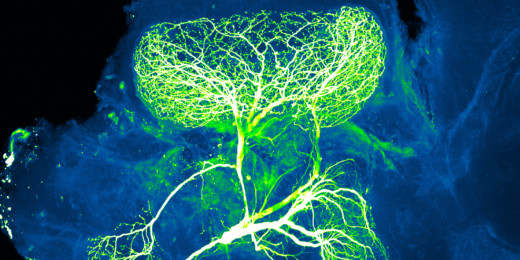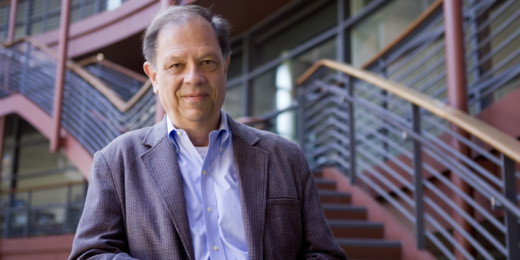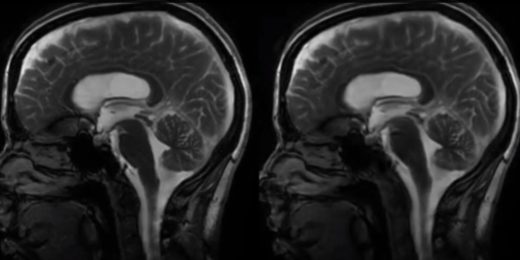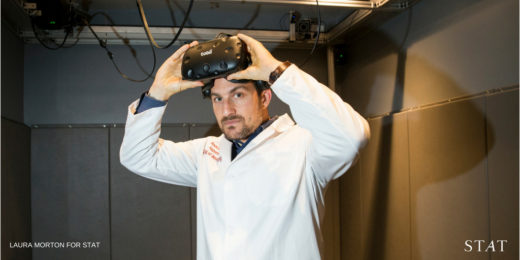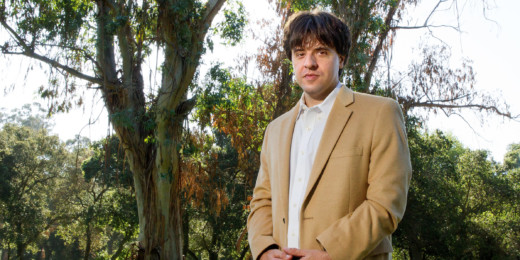The Camarillo lab uses alignment simulations, including a version that mimics a woodpecker, to study the role of neck muscles in concussion prevention.
Category: Neurobiology
Brain’s serotonin system includes multiple, sometimes conflicting, pathways
New Stanford study reveals our brain’s serotonin system is actually composed of multiple parallel subsystems that sometimes act in opposing ways.
This is your brain on… roller coasters?
How risky are roller coasters for the human brain? A team of Stanford engineers rode roller coasters for science, hoping to find out.
Deep brain stimulation might benefit those with severe alcoholism, preliminary studies show
Stanford researchers examine the use of deep brain stimulation therapy to treat alcohol use disorders and reduce relapse rates.
On/off sociability switch in brain identified, could play a role in autism
An electrochemical on/off switch in the brain may spell the difference between sociability and social awkwardness, scientists have learned.
A nanoparticle opens new windows into neuroscience and biology
A team of Stanford researchers have developed a nanoparticle that allows them to track molecular signals within a neuron.
Editorial shows importance of looking beyond medications to treat pain
Brain regions not directly involved in the receipt of pain signals play a key role in the perception of pain, and show the importance of non-drug therapies.
“Mood mirror” in blood: Might its absence bring on the blues?
Low levels of a substance, acetyl-L-carnitine, in the blood are associated with depression. Could this "mood mirror" be a cure for the blues?
How you get around depends on how fast you’re moving
How our brains blend cues from multiple senses to estimate our speed and position in space depends on where we are and how fast we seem to be moving.
Differences in brain’s reward circuit may explain social deficits in autism
Children with autism have structural and functional abnormalities in the brain circuit that normally makes social interaction feel rewarding.
How a Stanford neurobiologist thinks about his faith
William Newsome is a world-class neurobiologist and a Christian. He talked to Stanford News about how his faith helped inspire his interest in the brain and what he sees as the real and imagined tensions between faith and science.
The beating brain: A video captures the organ’s rhythmic pulsations
A group of researchers have developed an imaging method to show the brain in motion.
Stanford “risk-taker” uses virtual reality to study glaucoma treatment, fear
Stanford neuroscientist Andrew Huberman is studying the effectiveness of virtual reality as a tool for preserving sight for glaucoma patients.
What brain science tells us about family separations
A Stanford pediatric trauma expert discusses children's separation from their parents at the border and shares how childhood trauma can harm the brain.
Mind this: Research reveals the power of the mind
New Stanford research is clarifying the powerful role played by the mind in pain, health, social settings, education and more.
Stanford psychiatrist, engineer and neuroscientist Karl Deisseroth wins 2018 Kyoto Prize
Stanford's Karl Deisseroth has won the 2018 Kyoto Prize in applied technology for his invention and application of optogenetics.







